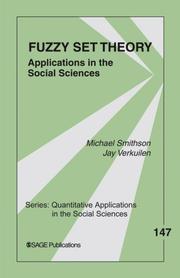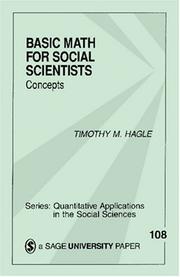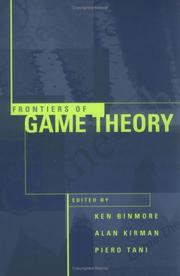Multi
ISBN: 9783031295591 9783031295584 9783031295607 9783031295614 3031295595 Year: 2023 Publisher: Cham Springer International Publishing
Abstract | Keywords | Export | Availability | Bookmark
 Loading...
Loading...Choose an application
- Reference Manager
- EndNote
- RefWorks (Direct export to RefWorks)
The book offers an introduction to the technical foundation of decentralized insurance models, for advanced undergraduate students, graduate students and practitioners. The book is self-contained and anyone with a basic knowledge of probability and statistics should be able to follow through the entire book. It adopts a minimalist approach to describe the essential elements and first principles so that readers can get a gist of these models without being overwhelmed with too much technicality. It can be used as a reference for business model designs. The inclusion of exercises and practical examples makes the book suitable for advanced courses on decentralized insurance and risk sharing. There is a mix of industry practices and academic models presented in this book. The exposition starts with an overview of historic and current business practices and preliminaries on the mathematics and economics of risk and insurance. A bird's-eye view of traditional insurance is provided as a benchmark for various topics to be used in contrast with decentralized insurance. The book then continues with decentralized insurance practices around the world, including online mutual aid originated in China, takaful from the Islamic world, peer-to-peer insurance in the West, catastrophe risk pooling for Caribbean countries, etc. Theories of aggregate risk pooling and peer-to-peer risk exchanges are provided for readers to appreciate the mathematical foundation of risk sharing. A unified framework of decentralized insurance is presented to show a structured approach to the economic design of decentralized business models. The book ends with a technical review of blockchain and decentralized finance (DeFi) insurance applications.
Statistical science --- Mathematical statistics --- Probability theory --- waarschijnlijkheidstheorie --- statistiek --- Social sciences—Mathematics. --- Probabilities. --- Statistics. --- Mathematics in Business, Economics and Finance. --- Applied Probability. --- Applied Statistics. --- Assegurances --- Estadística matemàtica --- Models matemàtics --- Finance --- Business & Economics --- Insurance --- Statistical methods. --- Mathematical models.

ISBN: 2733210211 9782733210215 Year: 2000 Publisher: Paris Institut national d'études démographiques
Abstract | Keywords | Export | Availability | Bookmark
 Loading...
Loading...Choose an application
- Reference Manager
- EndNote
- RefWorks (Direct export to RefWorks)
Operational research. Game theory --- Social sciences --- Political science --- Political statistics --- Sciences sociales --- Science politique --- Mathematics --- Mathematical models --- Mathématiques --- Modèles mathématiques --- Méthodes statistiques --- -Social sciences --- -Behavioral sciences --- Human sciences --- Sciences, Social --- Social science --- Social studies --- Civilization --- Statistical methods --- -Mathematical models --- Mathématiques --- Modèles mathématiques --- Méthodes statistiques --- Social sciences - Mathematics --- Social sciences - Mathematical models --- Social sciences - Statistical methods

ISBN: 076192986X 9780761929864 1412984300 1441628169 1452212414 Year: 2006 Volume: 147 Publisher: Thousand Oaks, Calif. Sage
Abstract | Keywords | Export | Availability | Bookmark
 Loading...
Loading...Choose an application
- Reference Manager
- EndNote
- RefWorks (Direct export to RefWorks)
This book introduces fuzzy set theory to social science researchers. Fuzzy sets are categories with blurred boundaries. With classical sets, objects are either in the set or not, but objects can belong partially to more than one fuzzy set at a time. Many concepts in the social sciences have this characteristic, and fuzzy set theory provides methods for systematically dealing with them. A primary reason for not going beyond programmatic statements and rather unsophisticated uses of fuzzy set theory has been the lack of practical methods for combining fuzzy set concepts with statistical methods. This monograph takes that topic as its major focus, and provides explicit guides for researchers who would like to harness fuzzy set concepts while being able to make statistical inferences and test their models. Real examples and data-sets from several disciplines illustrate the techniques and applications, demonstrating how a combination of fuzzy sets and statistics enable researchers to analyze their data in new ways.
Mathematical logic --- MATHEMATICS --- Set Theory --- Social sciences --- Fuzzy sets --- Social Sciences - General --- Social Sciences --- Mathematics --- Fuzzy sets. --- Mathematics. --- #SBIB:303H10 --- kwantitatieve methoden --- maatschappijwetenschappen, methoden --- operations research --- Methoden en technieken: algemene handboeken en reeksen --- Sciences sociales --- Ensembles flous --- Mathématiques --- Sets, Fuzzy --- Fuzzy mathematics --- Set theory --- Social sciences - Mathematics
Book
ISSN: 0149192X ISBN: 9781412960809 1412960800 1412983223 1452209006 Year: 2009 Volume: 159 Publisher: Thousand Oaks, Calif. Sage
Abstract | Keywords | Export | Availability | Bookmark
 Loading...
Loading...Choose an application
- Reference Manager
- EndNote
- RefWorks (Direct export to RefWorks)
"John Fox's A Mathematical Primer for Social Statistics covers many often ignored yet important topics in mathematics and mathematical statistics. This text provides readers with the foundation on which an understanding of applied statistics rests."--Pub. desc.
Quantitative methods in social research --- #SBIB:303H10 --- #SBIB:303H61 --- #SBIB:303H510 --- maatschappijwetenschappen, methoden --- kwantitatieve methoden --- mathematische modellen, toegepast op economie --- Methoden en technieken: algemene handboeken en reeksen --- Wiskundige methoden en technieken --- Methoden sociale wetenschappen: statistische technieken, algemeen --- Social sciences --- Mathematics. --- Statistical methods. --- Mathematics --- Statistical methods --- Sciences sociales --- Mathématiques. --- Méthodes statistiques. --- Social sciences - Mathematics --- Social sciences - Statistical methods --- Mathématiques. --- Méthodes statistiques.
Book
ISBN: 0824710010 9780824710019 Year: 1980 Volume: 59 Publisher: New York
Abstract | Keywords | Export | Availability | Bookmark
 Loading...
Loading...Choose an application
- Reference Manager
- EndNote
- RefWorks (Direct export to RefWorks)
Operational research. Game theory --- Consensus (Social sciences) --- Social choice --- Social policy --- Game theory --- Combinatorial analysis --- Mathematics --- Analyse combinatoire --- Mathématiques économiques --- Théorie des jeux --- Mathématiques économiques --- Théorie des jeux --- Social choice. --- Consensus (Social sciences) - Mathematics --- Social choice - Mathematics --- Social policy - Mathematics

ISBN: 0803958757 9780803958753 1544307772 0585180857 Year: 1995 Volume: 108 Publisher: Thousand Oaks, Calif. Sage
Abstract | Keywords | Export | Availability | Bookmark
 Loading...
Loading...Choose an application
- Reference Manager
- EndNote
- RefWorks (Direct export to RefWorks)
Mathematics --- Social sciences --- Sciences sociales --- --Mathématiques --- --Mathematics --- Mathematics. --- Methoden en technieken --- statistiek. --- #SBIB:303H10 --- #SBIB:303H12 --- -Math --- Science --- Behavioral sciences --- Human sciences --- Sciences, Social --- Social science --- Social studies --- Civilization --- Methoden en technieken: algemene handboeken en reeksen --- Methoden en technieken: sociale wetenschappen --- Mathématiques --- Math --- Social sciences - Mathematics --- Mathématiques

ISBN: 0262023563 9780262023566 Year: 1993 Publisher: Cambridge, Mass. : MIT Press,
Abstract | Keywords | Export | Availability | Bookmark
 Loading...
Loading...Choose an application
- Reference Manager
- EndNote
- RefWorks (Direct export to RefWorks)
Social sciences --- Game theory --- Mathematics --- Congresses --- 305.6 --- AA / International- internationaal --- NBB congres --- 519.83 --- 519.83 Theory of games --- Theory of games --- Behavioral sciences --- Human sciences --- Sciences, Social --- Social science --- Social studies --- Civilization --- Mathematics&delete& --- Risicotheorie, speltheorie. Risicokapitaal. Beslissingsmodellen --- Théorie des jeux --- Sciences sociales --- Mathématiques. --- Social sciences - Mathematics - Congresses --- Game theory - Congresses --- Théorie des jeux --- Mathématiques.
Book
ISBN: 3319659162 3319659146 Year: 2017 Publisher: Cham : Springer International Publishing : Imprint: Springer,
Abstract | Keywords | Export | Availability | Bookmark
 Loading...
Loading...Choose an application
- Reference Manager
- EndNote
- RefWorks (Direct export to RefWorks)
This book provides a rigorous introduction to the principles of econometrics and gives students and practitioners the tools they need to effectively and accurately analyze real data. Thoroughly updated to address the developments in the field that have occurred since the original publication of this classic text, the second edition has been expanded to include two chapters on time series analysis and one on nonparametric methods. Discussions on covariance (including GMM), partial identification, and empirical likelihood have also been added. The selection of topics and the level of discourse give sufficient variety so that the book can serve as the basis for several types of courses. This book is intended for upper undergraduate and first year graduate courses in economics and statistics and also has applications in mathematics and some social sciences where a reasonable knowledge of matrix algebra and probability theory is common. It is also ideally suited for practicing professionals who want to deepen their understanding of the methods they employ. Also available for the new edition is a solutions manual, containing answers to the end-of-chapter exercises. .
Economics, Mathematical. --- Statistics. --- Econometrics. --- Economics. --- Statistics for Business/Economics/Mathematical Finance/Insurance. --- Quantitative Finance. --- Finance. --- Statistics for Business, Management, Economics, Finance, Insurance. --- Funding --- Funds --- Economics --- Currency question --- Economics, Mathematical --- Statistics --- Statistical analysis --- Statistical data --- Statistical methods --- Statistical science --- Mathematics --- Econometrics --- Statistics . --- Economics, Mathematical . --- Mathematical economics --- Methodology --- Social sciences—Mathematics. --- Statistics in Business, Management, Economics, Finance, Insurance. --- Mathematics in Business, Economics and Finance.
Book
ISBN: 303112409X 3031124081 Year: 2023 Publisher: Cham Springer Nature
Abstract | Keywords | Export | Availability | Bookmark
 Loading...
Loading...Choose an application
- Reference Manager
- EndNote
- RefWorks (Direct export to RefWorks)
This open access book discusses the statistical modeling of insurance problems, a process which comprises data collection, data analysis and statistical model building to forecast insured events that may happen in the future. It presents the mathematical foundations behind these fundamental statistical concepts and how they can be applied in daily actuarial practice. Statistical modeling has a wide range of applications, and, depending on the application, the theoretical aspects may be weighted differently: here the main focus is on prediction rather than explanation. Starting with a presentation of state-of-the-art actuarial models, such as generalized linear models, the book then dives into modern machine learning tools such as neural networks and text recognition to improve predictive modeling with complex features. Providing practitioners with detailed guidance on how to apply machine learning methods to real-world data sets, and how to interpret the results without losing sight of the mathematical assumptions on which these methods are based, the book can serve as a modern basis for an actuarial education syllabus.
Actuarial science. --- Statistics. --- Machine learning. --- Artificial intelligence—Data processing. --- Social sciences—Mathematics. --- Actuarial Mathematics. --- Statistics in Business, Management, Economics, Finance, Insurance. --- Machine Learning. --- Data Science. --- Mathematics in Business, Economics and Finance. --- Learning, Machine --- Artificial intelligence --- Machine theory --- Statistical analysis --- Statistical data --- Statistical methods --- Statistical science --- Mathematics --- Econometrics --- Statistics --- Insurance --- Deep Learning --- Actuarial Modeling --- Pricing and Claims Reserving --- Artificial Neural Networks --- Regression Modeling --- Assegurances --- Estadística
Book
ISBN: 9783662669754 Year: 2023 Publisher: Berlin, Heidelberg Springer Berlin Heidelberg :Imprint: Springer
Abstract | Keywords | Export | Availability | Bookmark
 Loading...
Loading...Choose an application
- Reference Manager
- EndNote
- RefWorks (Direct export to RefWorks)
This 2nd edition, revised and extended compendium contains and explains essential mathematical formulas within an economic context. Newly added content focuses on financial mathematics, now including an international comparison between different national methods used in the calculation of interest. Further, the annuity calculation now contains unique content. A broad range of aids and supportive examples will help readers to understand the formulas and their practical applications. This mathematical formulary is presented in a practice-oriented, clear, and understandable manner, as it is needed for meaningful and relevant application in global business, as well as in the academic setting and economic practice. The topics presented include, but are not limited to: mathematical signs and symbols, logic, arithmetic, algebra, linear algebra, combinatorics, financial mathematics, optimisation of linear models, functions, differential calculus, integral calculus, elasticities, economic functions, and the Peren Theorem. Given its scope, the book offers an indispensable reference guide and is a must-read for undergraduate and graduate students, as well as managers, scholars, and lecturers in business, politics, and economics.
Econometrics. --- Business mathematics. --- Social sciences—Mathematics. --- Statistics. --- Quantitative Economics. --- Business Mathematics. --- Mathematics in Business, Economics and Finance. --- Statistics in Business, Management, Economics, Finance, Insurance. --- Economics, Mathematical --- Statistics --- Statistical analysis --- Statistical data --- Statistical methods --- Statistical science --- Mathematics --- Econometrics --- Arithmetic, Commercial --- Business --- Business arithmetic --- Business math --- Commercial arithmetic --- Finance

 Search
Search Feedback
Feedback About UniCat
About UniCat  Help
Help News
News